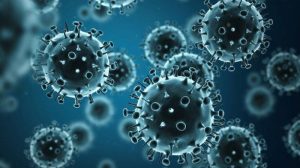UNAIR NEWS – Foot and mouth disease (PMK) has infected livestock in various regions in Indonesia. As a result, the concern about disease management among breeders rises. PMK is a severe and contagious disease of cloven hoofed animals from an RNA virus of the Apthovirus genus and has seven different serotypes (bacterial variations).
A lecture of Banyuwangi School of Health Science and Natural Science (SIKIA), Prima Ayu Wibawati drh M Si stated that physiologically, foot and mouth disease (PMK) can be detected from blisters around the mouth and nose, shown weakness, and significantly decreased productivity. The disease is highly affecting the economy of the breeders.
“If there are only one or two cows got infected with PMK, their productivity and reproduction will be decreased. Besides, cows are not allowed to be independently traded and slaughtered by the breeders,” she said.
Dr. Prima added that the vaccination cannot be done yet as the Indonesian Research Center for Veterinary Sciences has not determined the infecting virus strain yet. “The type of vaccine surely has to match the serotype. The vaccine cannot provide cross-protection from other serotypes,” she said.
With morbidity level reaching 100 percent and massive transmission, the PMK-infected farms need to be proactive and treated as soon as possible.
Call the department
As the cases of PMK arise, every region has formed a PMK standby team that coordinates with the related departments. “Every region has prepared teams to handle the plague through the related departments. The teams will take the steps needed,” she said.
Isolate the cowshed
The lecturer of the SIKIA Kesmavet division then explained that the cowsheds with PMK suspect cases need to be locally isolated.
“Breeders should isolate the cowshed from the other livestock’s in and out. Apart from that, the cowshed should be disinfected, and vitamins should be given,” she stated.
The academics should also provide guidance to the breeders to prevent the massive spread of disease and techniques for treating animals infected with PMK.
“The breeders should know how to cleanse the wound using 1 percent NaCl,” she said.
Maintain the personal hygiene, cleanliness of environment, and cowshed
Though PMK virus is hard to infect humans, there are concerns that breeders may become vectors of spread to healthy animals. “After handling livestock, the breeders should change their clothes frequently. They should be aware of personal hygiene and maintain the cleanliness of cowshed and environment,
The lecturer of SIKIA Banyuwangi are also advised the breeders to be transparent in finding cases or symptoms of PMK among their livestock. “Breeders need to be transparent. PMK-like symptoms such as the vesicles on the skin should be reported immediately. Don’t cover up or have the animal slaughtered. Honesty plays an important role in preventing the plague,” she stated.
Author:azhar burhanuddin
Editor:Feri Fenoria









